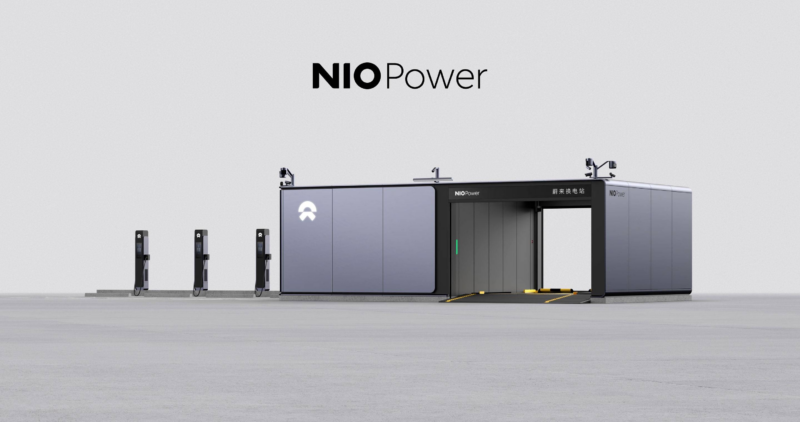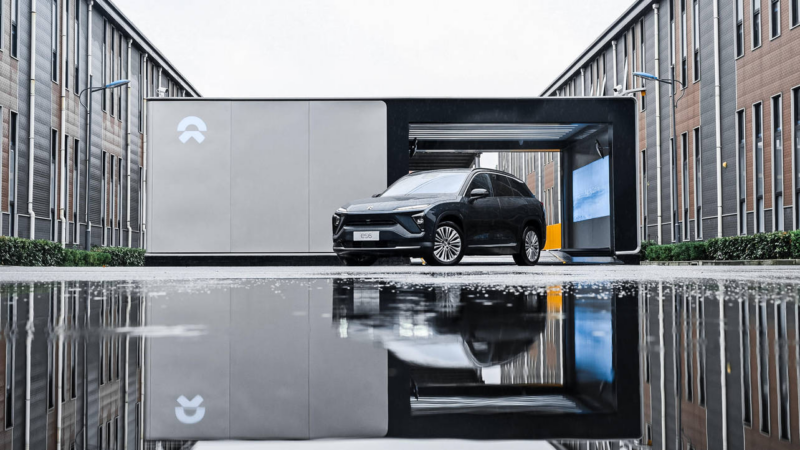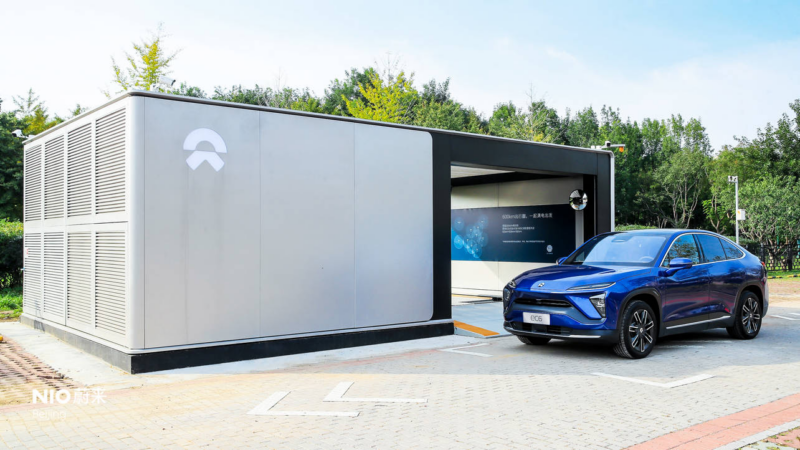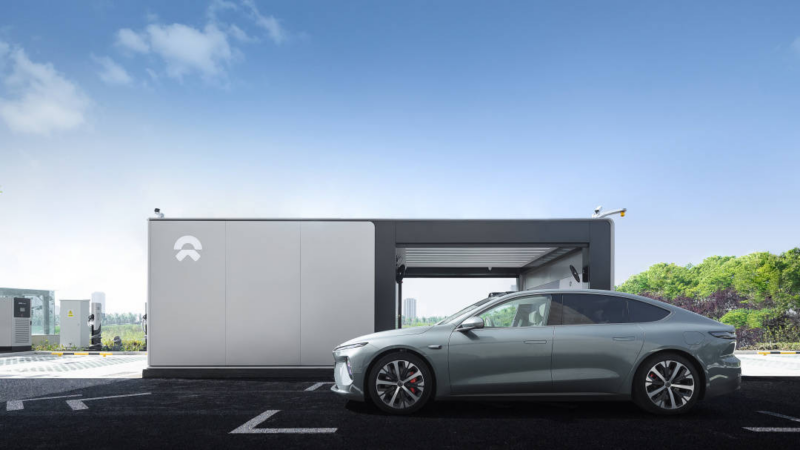Nio combats battery swap abuse amid financial losses
As the company faces significant financial pressures, Nio, the Chinese electric vehicle manufacturer, is intensifying its efforts to combat the widespread abuse of its complimentary battery swap program. Nio recently launched a new feature on its official app, encouraging owners to report suspicious activity involving Nio vehicles on ride-hailing and car rental platforms. Successful reports are rewarded with points and “Nio Value” credits.
This initiative targets users who misuse the free battery swap benefit for commercial gain, a practice commonly called “wool-gathering” in China.
The company’s move has sparked a debate among its user base. Some users support Nio’s actions, viewing them as a necessary step to protect the interests of all users. Others, however, argue that Nio is overstepping by restricting how owners use their purchased vehicles.

The “wool-gathering” phenomenon
Nio’s battery swap model, a cornerstone of its service and sales strategy, has inadvertently become susceptible to exploitation. The free battery swap entitlement, designed to attract customers and reduce ownership costs, allows eligible owners to swap batteries without charge, and even transfer this benefit when purchasing new Nio vehicles. This has led to various forms of abuse:
- Commercial Use: Some owners reportedly use Nio vehicles with free battery swap benefits for ride-hailing services like Didi and freight delivery platforms.
- External Power Supply: Users leverage the vehicle’s external discharge function to charge other electric cars, sometimes providing enough power for several days of commuting.
- Resale of Benefits: The transferrable free battery swap entitlement is sold on second-hand trading platforms, with reported profits reaching tens of thousands of yuan.
- “Mobile Power Stations”: In more extreme cases, some individuals use Nio vehicles as mobile generators. For instance, construction contractors allegedly use two Nio vehicles in rotation to supply power to temporary housing at construction sites. At the same time, factories connect discharge guns to their lighting systems to save on electricity bills.
Nio has previously attempted to curb these abuses by adjusting its entitlement policies. In October 2020, unlimited free battery swaps for new car owners were limited to six per month. In April 2023, this was further reduced to four times per month. By November 2023, the amount of free battery swap energy that could be used for external discharge was capped at 15 kWh per month.
However, these measures have largely been ineffective against persistent “wool-gatherers,” while legitimate first-time Nio buyers now primarily receive battery swap coupons, indicating a shrinking of benefits.
Nio’s financial strain and the need for action
The widespread abuse of the battery swap program poses a significant threat to Nio’s business model. Building a single battery swap station costs at least 1.5 million yuan (210,000 USD), with an additional 400,000 yuan (42,000 USD) annually for battery reserves, electricity, rent, and operations. Nio has already established over 3,100 battery swap stations nationwide, incurring an estimated 1 billion yuan (140 million USD) in maintenance costs last year alone. These substantial investments in the battery swap infrastructure are a major factor in Nio’s continued unprofitability, with the company reporting a loss of over 6 billion yuan (840 million USD) in the first quarter of 2025.
The free battery swap service was intended to address charging inconveniences for individual owners and enhance brand loyalty. However, the rampant “electricity theft” by “wool-gatherers” jeopardises the sustainability of Nio’s battery swap model. If the company’s profitability continues to be impacted, it could lead to further reductions in battery swap benefits and a decline in service quality for all users.
Nio has already begun suspending accounts of owners found to be illegally transferring benefits, signalling a more serious approach to enforcement.

Balancing enforcement and user experience
While Nio’s efforts to protect its business and the interests of its compliant users are understandable, especially given its significant financial losses, the company faces the challenge of how to identify “wool-gathering” behaviour without inadvertently penalising legitimate users.
Some have suggested using mileage data to identify commercial vehicles. However, Nio has stated that it will not determine commercial use based solely on mileage, emphasising its respect for diverse user scenarios. This indicates a cautious approach to avoid “misjudgments” that could unfairly impact owners.
The company acknowledges the difficulty in defining and identifying “wool-gathering.” For example, in the current economic climate, many individuals use their personal vehicles for part-time ride-hailing to supplement their income. Classifying such activities as “wool-gathering” could be seen as overly harsh.
Currently, Nio primarily relies on user-submitted reports to identify violations. While this may not completely eliminate all instances of abuse, it is expected to serve as a deterrent.
Ultimately, Nio must find a delicate balance between protecting its business interests and ensuring a fair and positive experience for its entire user base.




